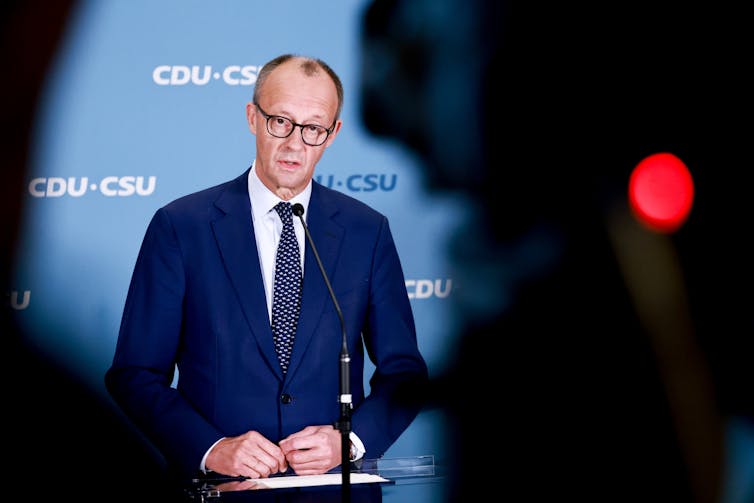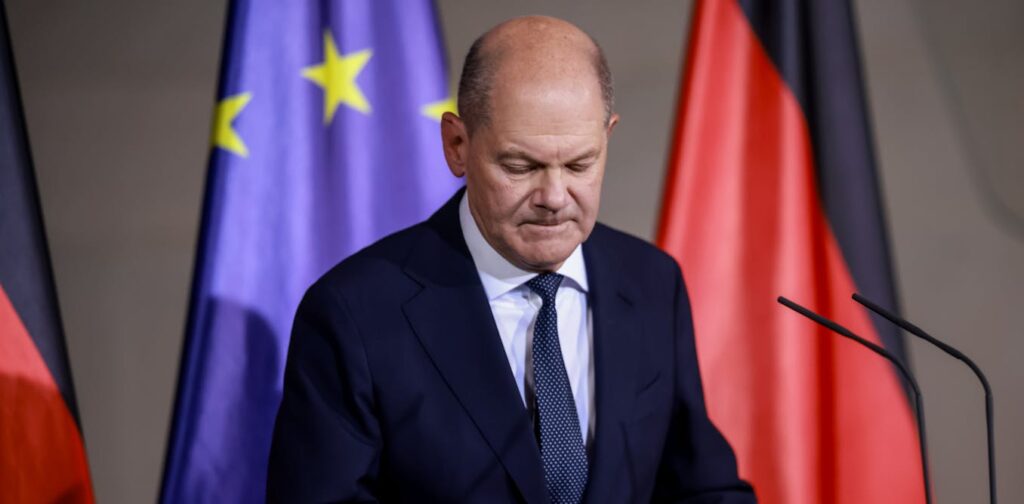German Chancellor Olaf Scholz’s dismissal of Finance Minister Christian Lindner intensifies a long-running conflict within the German government, ultimately leading to the collapse of the fragile coalition between the Social Democrats, Greens, and Liberal Democrats. did. For the first time, Mr. Scholz, often derided as an emotionless, robot-like speaker, seemed angry, even exasperated.
In his speech, Scholz blamed Lindner for the government’s collapse, describing his former finance minister as narrow-minded, uncompromising and untrustworthy. Linder’s reaction was swift and equally vitriolic. He blamed the prime minister’s lack of ambition and poor leadership.
Deputy Prime Minister and Economy Minister Robert Habeck acknowledged that his cabinet has been in constant debate since 2021. But he added that he felt the collapse of the government was avoidable and unnecessary.
Habeck is expected to run for prime minister, but he and the Green Party are in the most difficult position of the coalition parties. They are in deep crisis, and the polls show that. Recent opinion polls have shown that the Green Party’s support is at its lowest since 2017.
But Habeck is clearly concerned about more than his own party. He issued a stern warning to those who have high hopes for a snap general election. Germany’s political landscape is becoming increasingly fragmented, and it will become increasingly difficult to form governments at local and national levels.
What’s next?
For now, Scholz will remain prime minister and most of his cabinet members will remain in office. But with the loss of one of his younger partners in the coalition, he lost his majority in Germany’s Bundestag. This makes his government a toothless tiger, unable to pass laws or take important decisions.
Scholz is aware of this and has announced that he will hold a vote of confidence in the Bundestag on January 15th. If he loses that vote, Scholz could ask President Frank-Walter Steinmeier to call an early election.

EPA
If Scholz’s plan is successful, Germany’s next federal election will be held in late March, six months earlier than planned. But Conservative opposition leader Friedrich Merz has already made it clear that he does not want to wait that long.
He called on Scholz to immediately call new elections. Merz knows that Scholz’s time as chancellor is numbered and there is a good chance he will be replaced.
Trump supporter as German chancellor?
For now, Mertz has plenty of reason to be confident. He was unanimously elected as the Conservative Party’s candidate for prime minister in September 2024. This means Merz can count on the support of two political parties, Germany’s Christian Democratic Union (CDU), which was last in power under Angela Merkel, and Bavaria’s Christian Social Union (CSU). .

Hannibal Hanschke/EPA-EFE
In contrast to her predecessor, Chancellor Merkel, Merz has made it her mission to close Germany’s borders to asylum seekers, even if it means breaking international agreements. He polemically questions the relevance of traditional media, using his X account to denounce criminal immigration and gender-inclusive language. Like newly re-elected US President Donald Trump, Mertz rejects environmentalism and believes strongly in capitalism.
Asked about his feelings toward Trump, Mertz said, “We’re going to get along just fine.” However, there are some differences. For example, Merz repeatedly emphasized his unconditional support for Volodymyr Zelenskiy’s forces and promised to provide Ukraine with more arms and funds.
As a lawyer by training, Mertz was deeply critical of Trump’s response to his 2020 election loss. Mertz later wrote on Twitter: “Donald Trump is clearly not a democrat. He refuses to accept his defeat or the court’s decision.”
In 2024, things will change. Mertz welcomes Trump’s inauguration as president for a second term. Perhaps not enthusiastic, but certainly with a lot of realism and hope for the future. Although he may not be as vocal as Hungary’s Viktor Orbán, Merz’s vision is to “make Europe great again.”



